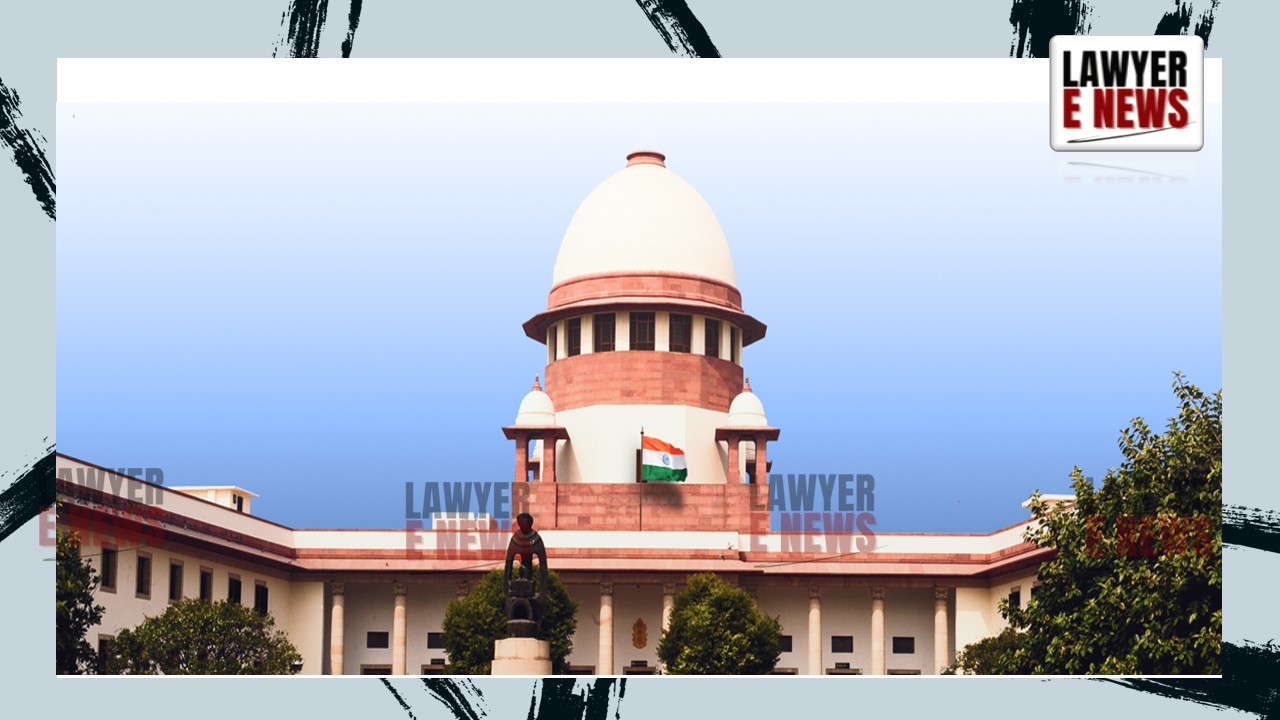-
by Admin
15 February 2026 5:01 PM



The nomenclature of a petition is immaterial. The High Court can exercise its inherent powers under Section 482 CrPC to prevent abuse of process or injustice, even if an alternative remedy is available - Supreme Court set aside the Madhya Pradesh High Court’s order dismissing a petition under Section 482 of the Code of Criminal Procedure (CrPC) for enhancement of interim maintenance. The High Court had dismissed the petition on the ground that the petitioner had an alternative remedy under Section 397 CrPC.
The Supreme Court observed that the High Court’s approach was “hyper-technical” and that the petition should have been treated as a criminal revision under Section 397 CrPC rather than being dismissed, especially when the issue related to substantive justice.
“Availability of Alternative Remedy Cannot Restrict Exercise of Section 482 CrPC Powers”
The Supreme Court reiterated that inherent powers under Section 482 CrPC are not curtailed by the availability of alternative remedies like revision under Section 397 CrPC. Relying on its earlier decisions, the Court emphasized:
“The inherent powers should not invade areas set apart for specific powers conferred under CrPC, but there is no total ban on their exercise where extraordinary circumstances or abuse of process warrants intervention.”
The Court held that while alternative remedies may exist, procedural rigidity should not obstruct the administration of substantive justice.
“Judicious Approach Demands Conversion of Petitions, Not Technical Dismissals”
The Court criticized the High Court’s approach of dismissing the petition purely on procedural grounds:
“The judicious approach would have been to convert the petition under Section 482 CrPC into a revision under Section 397 CrPC and decide the matter on merits.”
Citing precedents, including Madhu Limaye v. State of Maharashtra (1977) 4 SCC 551, the Court emphasized that the label of a petition is immaterial, and courts must focus on resolving the substantive issues rather than driving litigants into procedural complexities.
The case involved a dispute over the quantum of interim maintenance awarded under Section 125 CrPC by the Family Court. Dissatisfied with the amount, the appellant, Akanksha Arora, filed a petition under Section 482 CrPC in the Madhya Pradesh High Court seeking enhancement.
The High Court dismissed the petition, holding that the appellant had an alternative remedy of filing a criminal revision under Section 397 CrPC. This compelled the appellant to approach the Supreme Court through a Special Leave Petition (SLP).
The Court held that the nature of the relief sought, not the title of the petition, determines its maintainability. It cited Madhu Limaye v. State of Maharashtra to assert that procedural technicalities should not override the need for justice.
“The label of a petition filed by an aggrieved party is immaterial. Courts must focus on substantive justice and use their inherent powers judiciously.”
Referring to Prabhu Chawla v. State of Rajasthan (2016) 16 SCC 30, the Court reiterated that Section 482 CrPC grants High Courts the power to intervene in extraordinary circumstances to prevent abuse of process or to secure justice. The availability of an alternative remedy does not oust this power.
The Court criticized the High Court’s refusal to exercise its jurisdiction under Section 482 CrPC, which unnecessarily forced the appellant to approach the Supreme Court. It emphasized:
“Substantive justice demands that courts address the real dispute instead of dismissing cases on hyper-technical grounds.”
The Court pointed out that the High Court could have simply converted the petition under Section 482 CrPC into a revision under Section 397 CrPC to address the appellant’s grievance on merits.
The Supreme Court set aside the High Court’s order and remanded the case for fresh consideration. It directed:
Conversion of Petition: The High Court was instructed to treat the petition under Section 482 CrPC as a criminal revision under Section 397 CrPC.
Expeditious Disposal: The High Court was directed to decide the matter expeditiously and on merits after affording both parties an opportunity to be heard.
Focus on Substantive Justice: The Court emphasized that procedural technicalities should not hinder the resolution of disputes, particularly in matrimonial matters.
The Supreme Court’s ruling underscores the principle that courts must prioritize substantive justice over procedural rigidity. The judgment serves as a reminder that the judiciary’s primary role is to resolve disputes fairly and efficiently, rather than to burden litigants with unnecessary procedural hurdles.
This judgment not only provides relief to the appellant but also sets a precedent encouraging High Courts to adopt a pragmatic and judicious approach in similar cases.
Date of Judgment: December 4, 2024
